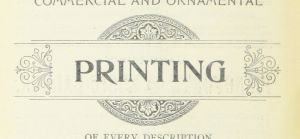My books are published with a small press with three imprints under their umbrella. They are recognized by the major writers’ organizations as a very credible press, with the one most important to me being the Mystery Writers of America. And before you ask who, just know that they are not taking on new authors at the moment.
So many people are writing these days, and publishers are inundated with submissions. As a result, over the last ten years, the number of small presses has risen. There’s even a sub-category of small press called a micro-press, and there are a zillion of those. 
But the Department of Justice/Penguin-Random House anti-trust case is showing us that big traditional publishing has problems, and frankly, is out of touch. A smaller press, however, is closer to grassroots level. In other words, the author and the publisher can actually talk to each other.
I could talk about specific New York publishers and how they’ve treated friends of mine, but I won’t. Said authors aren’t much more than a number, and editors rarely return their calls. If a book doesn’t sell well, it’s finished, with reversion rights held up for a good long time. Don’t even talk about what that does to a book series.
What I’ve found to be positive about small press publishing is:
1) They respond more promptly to you. (Mine emails within 24 hours.)
2) They actually admit you are a real human being.
3) They listen to your opinions, though the contract states they don’t necessarily have to.
4) They negotiate.
5) They don’t mind authors purchasing an inventory of their own books.
6) They are more willing to risk a new author or a new idea.
7) They are more likely to publish non-agented works.
8) They brainstorm with you.
What I’ve found to be negative about small press publishing is:
1) Their marketing budget isn’t huge. The onus is on the author with some assistance from the press.
2) They cannot absorb production costs as well, so they are passed on down the line.
3) They can open some doors better than a self-pubbed author, but they do not have nearly the distribution prowess of a bigger press.
4) They may not do hardcover or audio or deal much in foreign or entertainment rights.
5) Agents aren’t necessarily fond of pitching to them.
6) Print runs may be less than 1,000, less even than 500, and can even be print on demand.
7) Advances are zero to pennies.

But it’s the world I’ve chosen for me with no regrets. When I have an idea for a new book, my publisher listens, and she is quite intelligent. Ten years ago she told me to stick to a plan and let the long-tail approach to selling books do its job. In other words, keep writing the books, add to the backlist, increase the series, and readers will come. Keep mentioning yourself…steadily and not necessarily in financially-invested big splashes…and readers will come. Slow and steady eventually gives you a name and sells books.
But most of all, to me, having that solid backing of my small press allows me to focus on writing and
marketing and living the life I always wanted to as a writer.
BTW, my publisher is Bell Bridge Books.
(Unfortunately, they are not open to submissions at present.)
Leave a Reply